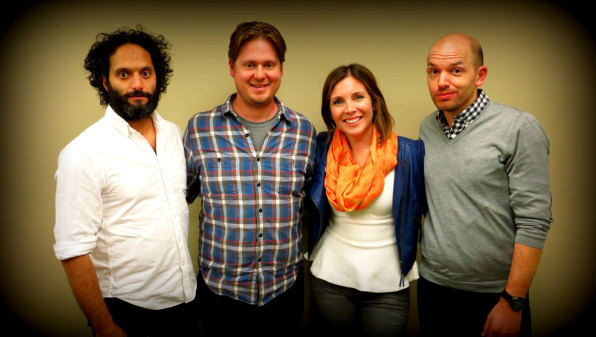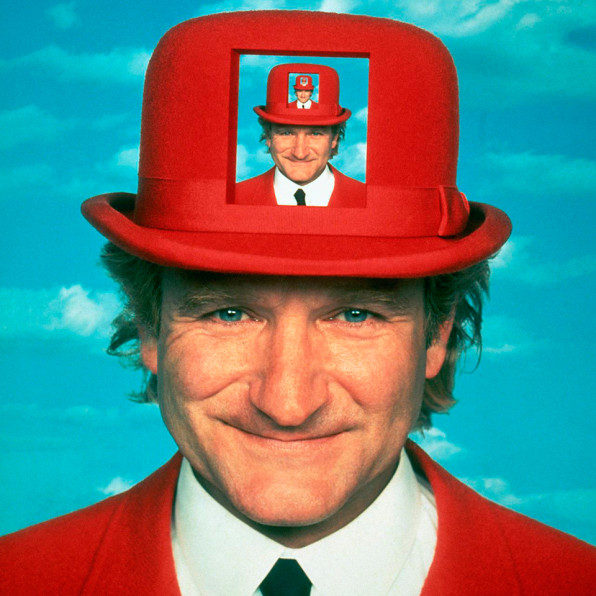Windows Movie Maker Using Pictures
Film schools allow would-be auteurs to stand on the shoulders of cinematic giants. Their students take in some of the most amazing movies ever made–from both pioneering directors and latter-day standard-bearers–and are encouraged to improve upon them. Another way to learn how to make a proper movie, though, is by examining all the wanderers who blazed dead-end trails along the way. Taking a thorough look at what are widely accepted as bad movies perhaps reveals just as much about the best practices of filmmaking as it does the worst.
There are plenty of podcasts that focus on deconstructing bad movies. The Flop House, Read it and Weep, and Proudly Resents are just a few of them. There's only one program of this ilk, however, that is hosted by actors and writers who are actually thriving in popular TV shows and movies.

"We have an understanding of how difficult it is to get anything made," says June Diane Raphael, one of the creators of How Did This Get Made? "We know how many people are involved, and how many compromises you have to make along the way to getting something close to your vision."
How Did This Get Made? is a podcast devoted to making sense of the movies that don't make sense, and its hosts are apt analysts. Raphael, the writer and star of Ass Backwards, which is currently in theaters, is joined on the show by her husband, Paul Scheer, and Jason Mantzoukas, both of whom star in and write on FXX's The League, as well as many other projects. Along with an appreciation for the unintentional comedy of an overblown Nicolas Cage fiasco, this trio also has the experience to appreciate how any given project can end up taking a turn for the worse.
"The bad movies we like are the ones where their ambition is big," says Mantzoukas. "They're trying to do something epic, and in doing so, they are failing spectacularly. I love the hubris of it."
The hosts conceived the show after discovering that talking about movies that don't work can be just as enjoyable as watching ones that do. Over the past three years, they've applied their signature mix of schadenfreude and empathy to 77 movies, cataloging all the ways they seem to go wrong. Co.Create caught up with the hosts of How Did This Get Made? to find out what they've learned so far about how not to make a movie.
Do Not Work Backwards From a Title
Paul Scheer: Whenever new technology is exploding, like "Computers! Internet! Facebook friends!" a bad movie about it is never far behind. I believe there's a Sandra Bullock movie called The Net, and a Harrison Ford movie called Firewall. It just comes across like, "These are terms people know now, so let's make a movie about them."
Jason Mantzoukas: There must be a movie coming out now called Selfie.
Paul Scheer: Someone just decides, "That's what people want to see!" It's always a sure indication that the art itself came second. Someone was like "We got the title, now let's work backwards."
Jason Mantzoukas: That's how Sharknado got made.
Do Not Feature Skateboarding or Surfing In Your Movie
Paul Scheer: Skateboarding and surfing are often tell-tale signs of a bad movie. Batman and Robin has surfing in the sky, to give you an idea. Whenever you see a movie where there are skateboard tricks, I guarantee that movie is not at the top of its form.
Ask Whether Your Movie Lends Itself To a Goofy Poster
Paul Scheer: The Old Dogs poster is Robin Williams and John Travolta shrugging, and Seth Green being held by a monkey. If I was a betting man, I think I'd know where I stand. A poster will always dictate something wrong right away. You've never seen a really bad poster for a really great movie.
If You're Going to Have Nic Cage, Have the Proper Nic Cage
Jason Mantzoukas: If Nicolas Cage is in it, and he is accented or has facial hair, it's going to be a bad movie.
Don't Try To Appeal to Everyone
Paul Scheer: Four-quadrant movies are ones that are supposed to appeal to men, women, young people, and old people. It's the same thing as every other form of entertainment–movies very rarely appeal to all groups at once. It's like, you've got to make a movie for who you make a movie for.
Jason Mantzoukas: Movies when they're dumbed down, that's when they're courting kid audiences. They're courting everybody and trying to come up with ways to make Walmart toys for it.
Paul Scheer: Parental Guidance is a movie where Billy Crystal and Bette Midler are grandparents coming to stay with their kids who are new-agey, and that's one that tries to be for everyone. There's a scene where Billy Crystal gets hit in the balls with a baseball bat. It's a traditionally funny thing, but here he gets hit in the balls so hard that he vomits on a child. You have to imagine someone going, "Yeah, yeah, yeah–definitely that."
Jason Mantzoukas: Unless it was Billy Crystal saying, "Well, if I was really hit in the balls, I'd probably throw up, so let's do that."
Pay Attention To Your Set Direction
Jason Mantzoukas: Sometimes just because I've been on some movie sets, I wind up noticing weird little minutiae in movies I'm watching. In this '90s action movie, Fair Game, there's a scene where the bad guy is monologing, and he's in the hull of a ship. It's this industrial weird ship where he's rushed in and lecturing these guys, but for some reason there's a pair of bongos there. And it's absolutely confounding. Not only were they like, "Yeah, yeah, yeah–put the bongos in there," they made sure to foreground them into the scene. Why?
Pay Attention To Your Background Actors

Paul Scheer: Whenever I'm watching a bad movie, my eyes always go to the extras and the background players. The background actors on bad movies are hilarious. I remember watching this movie How High, with Method Man and Redman. There's a scene where someone pulls a fire alarm, and everybody's running because they're wet from the sprinkler, and there's one guy just dancing in the background. Everybody else is like "I'm wet, and there's a fire!" Then there's this guy in the background doing an elaborate dance. And you can tell it was not a choice, but that nobody saw it and made sure to move him away. It's just a signal that these people were maybe asleep at the wheel.
Any Movie In Development For Too Long Is Stuck For a Reason
Paul Scheer: Whenever you hear the term, "A labor of love," it's usually a director who's been around a long time. They always say "I've been trying to get this movie made for 15 years." Well, a lot's changed in 15 years. They're like, "I wrote this in college, but now's the time."
Jason Mantzoukas: "And I finally have the power to make it!"
Paul Scheer: 15 years have elapsed so maybe, along with the technology, what you're trying to say has elapsed.
Prestige Doesn't Automatically Guarantee Success
Paul Scheer: This Nicolas Cage movie Season of the Witch won an Academy Award fellowship for being the best unproduced screenplay in 2003. It's clear when you watch the movie that something was lost in translation. That movie beat out so many other scripts that year, and yet it somehow became this way. It's something we all deal with when making movies. I've had days where after filming, I was like "I nailed it." And then you see it and go, "Hmm. That wasn't as funny as it seemed that day."

Jason Mantzoukas: A lot of times on the podcast, we're talking about movies that have great actors, great writers, great directors. It's such a complex brew to put all these things together and expect it to work. Toys is a great example for us. It's a movie that Barry Levinson wrote and directed at the height of being Barry Levinson. And you've got Robin Williams, Michael Gambon, amazing actors. But then for whatever reason, the movie just doesn't add up.
June Diane Raphael: You make a movie in pieces; you don't rehearse it like a play and then do it. Sometimes these things just don't work.
Windows Movie Maker Using Pictures
Source: https://www.fastcompany.com/3022449/the-makers-of-how-did-this-get-made-on-how-not-to-make-a-bad-movie